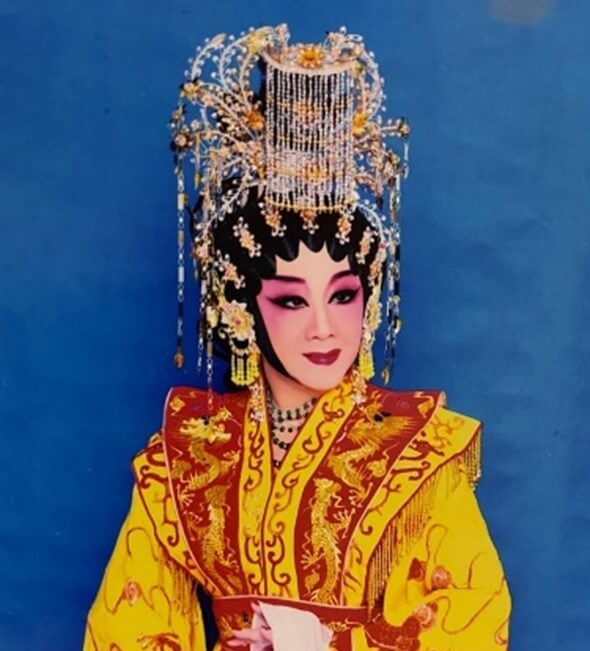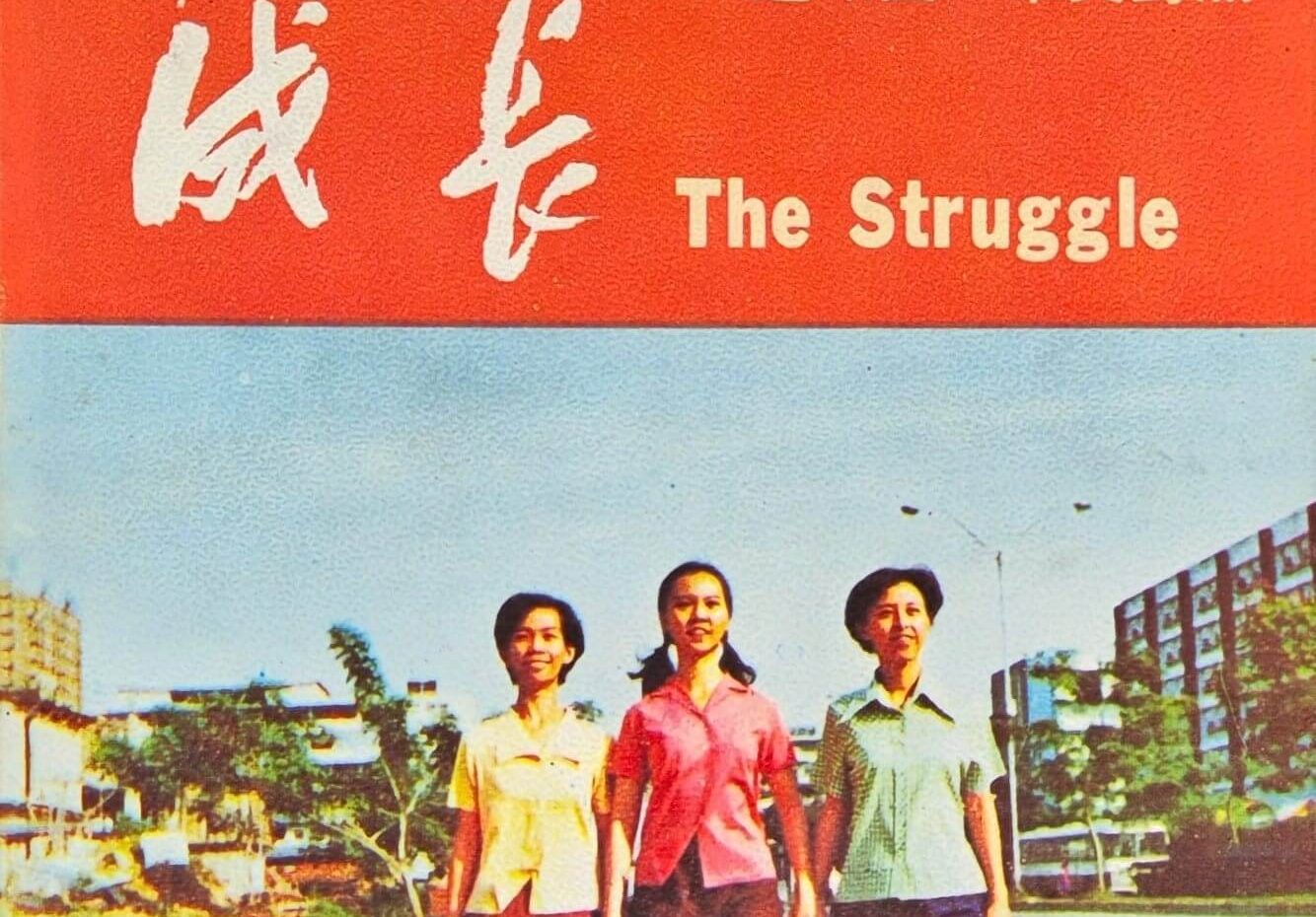Drama Box: Bringing community and forum theatre to wider audiences
Founded in 1990, Drama Box is a bilingual theatre company that focuses on social issues and promotes social engagement. Its mission is to create space through its work for communities to reflect on complex issues and enable them to gain a deeper understanding of Singapore culture, history, and identity through creative storytelling.1 The company explores many forms of artistic practice. Scholars believe that its works — be it original works, adaptations, commercial mainstream musicals, experimental productions, outdoor community theatre, radio forum theatre, or drama workshops for the public and specific groups — have made significant impact.2 Drama Box’s founder Kok Heng Leun, who was the company’s Artistic Director for 32 years, received the Cultural Medallion in 2022. In April 2022, Koh Hui Ling and Han Xuemei took over as Drama Box’s co-Artistic Directors.
From amateur group to full-time company
In 1990, a group of students and alumni from the drama division of the National University of Singapore’s Chinese Society got together and launched Drama Box. Like other Chinese-language theatre groups of the time, it was initially an amateur group, and staged two to three productions every year. In 1998, Drama Box officially became a full-time company, and increased the number of its productions. Besides a period in 2004 when it ceased full-time operations and presented just three small productions, the company has typically presented at least five to seven productions every year. These take place in conventional theatre venues, as well as community spaces and other sites.
Drama Box’s early years in the 1990s coincided with an era of multidisciplinary exploration in Singapore theatre, and the company started by staging experimental plays in small theatre venues, most notably independent arts centre The Substation. As it grew, Drama Box began to explore mainstream theatre genres in the late 1990s, in order to expand its audience base. In the 2000s, it delved into themes such as gender and social issues, as well as community theatre, and became one of Singapore’s most important professional Chinese-language theatre companies. Today, community participation and performances that incorporate dialogue with the audience are signature features of its works.

Venturing into community and forum theatre
In 2001, Drama Box began to explore community theatre. Its works in this genre were mainly devised, scripted, and directed by Kok and theatre practitioner Li Xie. These comprised short satirical plays as well as forum theatre, which involved audience participation. The original intent of this new direction was to reach out to a wider audience. In May 2001, Drama Box presented its first community performance, Lian Can Cook, which was about domestic violence. The same year, in November, it presented Singapore’s first outdoor forum theatre performance, Have You Eaten, and began to guide the audience in participating and engaging in this style of community performance.
Forum theatre was created by Brazilian dramatist Augusto Boal (1931–2009), and is among his Theatre of the Oppressed techniques. The hallmark of forum theatre is that audience members can replace actors in the cast and resolve the play’s crisis in a manner of their choosing. In this way, the audience transforms from passive spectators into active “spect-actors”. Drama Box was a pioneer in advocating forum theatre in Singapore. Over the years, it has worked with numerous organisations to create forum theatre performances, which explore topics such as domestic violence, at-risk youths, gambling addiction, racism, and terrorism.
In a 1991 interview with Lianhe Zaobao, Kok spoke about Drama Box’s ethos of social consciousness and social engagement. He also expressed hope that the company could stimulate audiences through thought-provoking theatre, and voice its views on social phenomena.3 After affirming its commitment to social engagement, Drama Box toured various parts of Singapore to promote community theatre, bringing socially-engaged theatre with participatory elements into community nodes. Instead of conventional theatre venues, it used forum theatre and site-specific venues to build audience interaction and created space for community dialogue through its works. The company guided the audience in exploring and reflecting on social issues, narrowing the gap between art and everyday life. Kok believes forum theatre is an important part of Drama Box, with the interaction between audience and performer making art not a product, but a practice.4
Drama Box has a greater number of forum theatre productions than those staged in conventional performance venues, and they also encompass more topics. These works not only reflect and discuss real-life topics but are also a form of social intervention and activism.5By expanding forum theatre, Drama Box brought theatre to grassroots communities. And by entering public community spaces, the company created opportunities for these communities to express themselves, and consolidated its vision of being a company with a strong social consciousness that was committed to social engagement.6

Multimedia and multilingual works
In recent years, to cater to and connect with a more diverse audience, Drama Box has introduced multimedia and multilingual works. For instance, the IgnorLAND series is a form of participatory and multilingual community theatre. Through in-depth interviews and research about specific neighbourhoods and their residents, the series delineates the marginalisation of communities, and invites audiences to participate and reflect on topics such as the preservation of history and political initiatives.7In 2014, IgnorLAND of its Time was staged in the public housing estate of Bukit Ho Swee and was the company’s first site-specific social theatre production. The following year in 2015, it staged the participatory theatre The Lesson for the first time. For this production, Drama Box tried to deepen audience participation in the creative process by encouraging audience members to discuss the issue of land use and direct the plot development. In 2016, with the support of the Ministry of Education’s Character and Citizenship Education Branch, an adapted version of The Lesson was staged in schools and garnered student participation. In 2024, Drama Box was commissioned by Esplanade – Theatres on the Bay to adapt Daniel Hinds’ podcast, The Dog Who Wasn’t Useful, into an engaging and interactive play for children. This production told the story of a journey of self-discovery and speaks to the company’s continued quest to expand its audience base.
Notable productions
Drama Box’s notable works include:
- Another Tribe (1992), the first restricted Chinese-language play for its homosexuality content
- Fugitives (2002), a multilingual play with Singaporean playwright Alfian Sa’at
- The vaginaLOGUE (2000, 2003), created, written, and performed by Li Xie
- Dua Dai Ji (News Buster!) (2005), a community theatre series based on headline news, directed and written by Li Xie
- Trick or Threat! (2007), a forum theatre production that explores racial biases surrounding terrorist threats, co-directed by Kok Heng Leun and Aidli “Alin” Mosbit
- IgnorLand of its Name (2007), a participatory work that aims to excavate the shared memories of the community, conceptualised and directed by Kok Heng Leun
- GoLi – The Moving Theatre (2015), a travelling theatre designed specifically for outdoor performances
- BOTH SIDES, NOW (2013–2023), a multidisciplinary arts experience on end-of-life issues

Looking back at the development of Singapore’s Chinese-language theatre, one can observe that it has continuously engaged in interaction, dialogue, resistance, and negotiation with social, political, and cultural systems. One of the hallmarks of contemporary Singapore theatre is its transcendence of “art for art’s sake”. Rather, theatre is seen as an effective medium for translating concern for communities and society, and political engagement, into practice.8Drama Box is one of the theatre companies that illustrate this trajectory. From working in conventional venues, to shifting to black box theatres, forum theatre, and community theatre, it has continuously sought to provoke audience reflection on pressing topics. Besides creating theatre productions, it also helms discussion forums and training programmes, and strives to contribute to a sustainable arts ecosystem. Through initiatives such as the Blanc Space incubation programme, which ran for 15 years, and its youth wing ARTivate, the company nurtures new generations of theatre practitioners who continue to emphasise social consciousness, and the importance of questioning, exploring, and challenging ideas.
This is an edited and translated version of 社区与论坛剧场:戏剧盒. Click here to read original piece.
| 1 | About Drama Box, https://www.dramabox.org/about_db.html. |
| 2 | Ng How Wee, Xijuhe yu xinjiapo de shehui juchang: Wenhua ganyu yu yishu zizhuxing [Drama Box and the social theatre of Singapore: Cultural intervention and artistic autonomy], 5. |
| 3 | Ng How Wee, Xijuhe yu xinjiapo de shehui juchang: Wenhua ganyu yu yishu zizhuxing [Drama Box and the social theatre of Singapore: Cultural intervention and artistic autonomy], 6. |
| 4 | Quah Sy Ren, ed., Drama Box 30 Keywords, 10. |
| 5 | Quah Sy Ren, Scenes: A Hundred Years of Singapore Chinese Language Theatre 1913–2013, 206. |
| 6 | Quah, Drama Box 30 Keywords, 59. |
| 7 | Ibid., 33. |
| 8 | Ibid., 13. |
Ng, How Wee. Xijuhe yu xinjiapo de shehui juchang: Wenhua ganyu yu yishu zizhuxing [Drama Box and the social theatre of Singapore: Cultural intervention and artistic autonomy]. Singapore: Nanyang Technological University’s Centre for Chinese Language and Culture and Global Publishing, 2011. | |
Quah, Sy Ren, ed. Xijuhe 30 guanjianci [Drama Box 30 Keywords]. Singapore: Drama Box, 2022. | |
Quah, Sy Ren. Xiju bainian: Xinjiapo huawen xiju 1913–2013 [Scenes: a hundred years of Singapore Chinese language theatre 1913–2013]. Singapore: Drama Box, National Museum of Singapore, 2013. |










